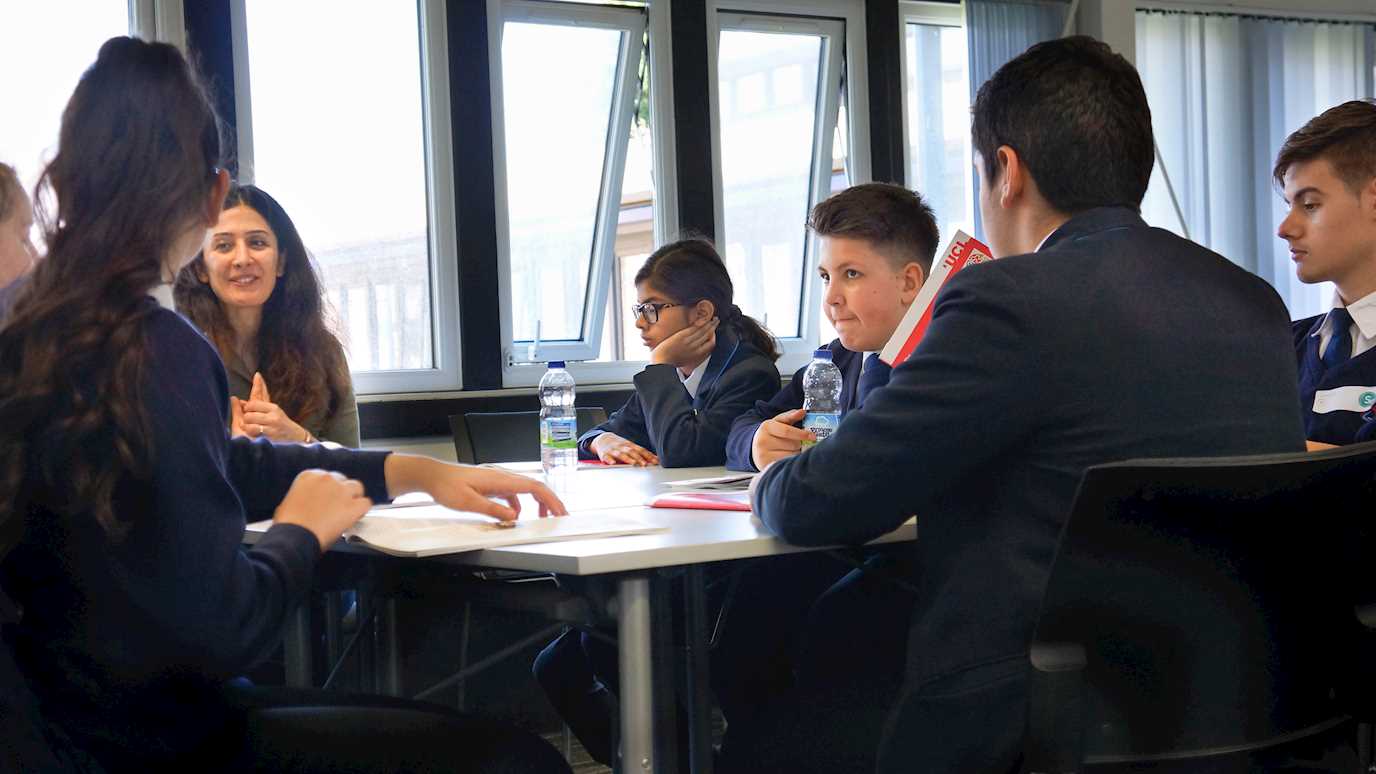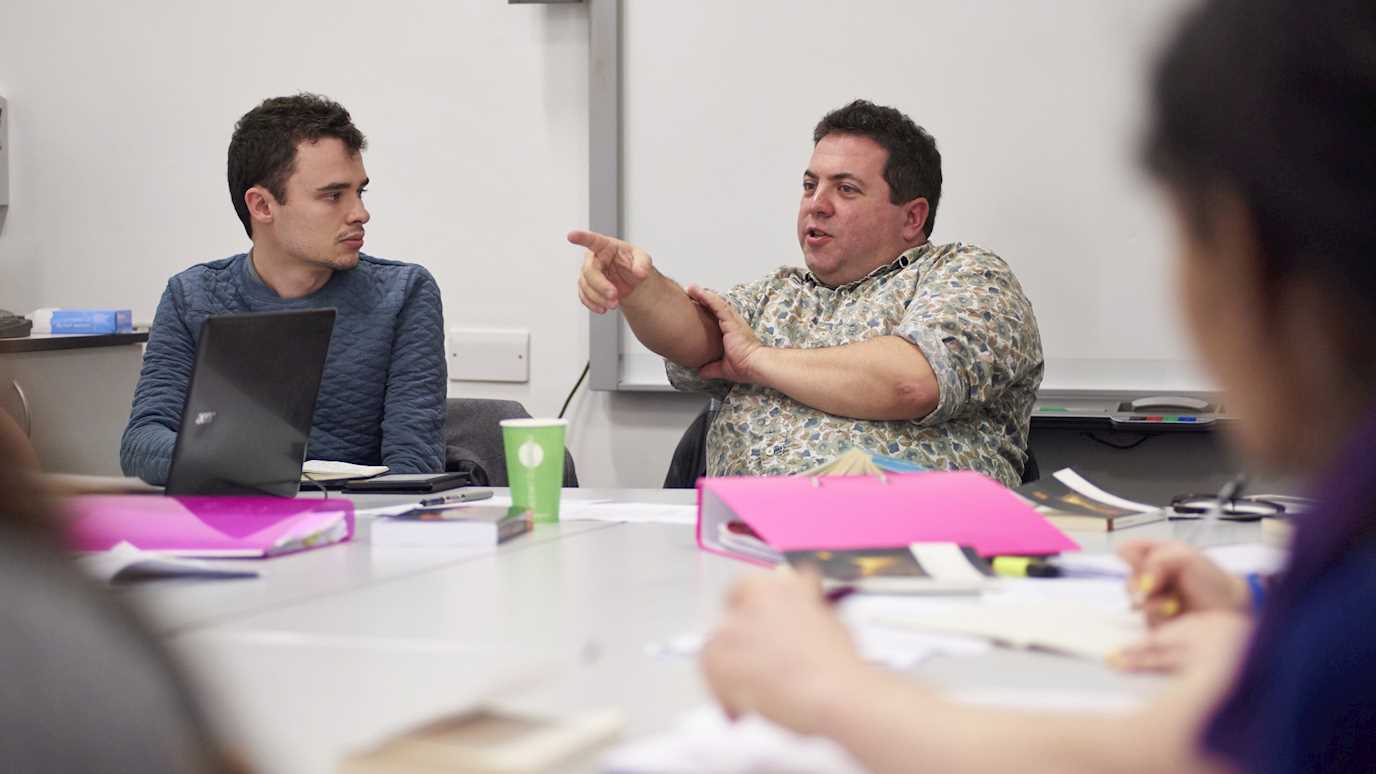Dr Ahmed Honeini on The Sound and the Fury
Key Points
- A useful approach to teaching this novel is in the context of tragedy (specifically Shakespearean tragedy, such as Hamlet or Macbeth). The novel is about a series of tragedies which befall the Compsons, an aristocratic Southern family.
- The novel is told in a series of fragments, through four different narrators/narrative styles: Benjy Compson (“April Seventh, 1928”), Quentin Compson (“June Second, 1910), Jason Compson III (“April Sixth, 1928”), and a third-person narrative voice, best described as “Faulkner” (“April Eighth, 1928”).
- Among the novel’s many key themes is the issue of social change occurring in the Southern United States during the early twentieth-century, particularly regarding changing attitudes towards slavery and racial politics, and female sexuality.
- The novel emerged at the tail-end of the nineteen-twenties, a decade known for its innovations in European literary modernism (James Joyce, T. S. Eliot, Virginia Woolf, D. H. Lawrence), and at a time when American modernism was converging rapidly with its European counterparts (Ezra Pound, Gertrude Stein, F. Scott Fitzgerald, Ernest Hemingway).
- The novel is intentionally difficult, particularly the opening two sections. Difficulty is an inbuilt aspect of the novel’s design, and Faulkner’s authorial and aesthetic method.
Suggested Passages
- ‘Through the fence, between the curling flower spaces, I could see them hitting. They were coming toward where the flag was and I went along the fence. Luster was hunting in the grass by the flower tree. They took the flag out, and they were hitting. Then they put the flag back and they went to the table, and he hit and the other hit. Then they went on, and I went along the fence’ (“April Seventh, 1928”, 3).
- ‘“Hello, Benjy.” Caddy said. She opened the gate and came in and stooped down. Caddy smelled like trees’ (“April Seventh, 1928”, 5).
- ‘“You just take your dress off.” Quentin said. Caddy took her dress off and threw it on the bank. Then she didn’t have on anything but her bodice and drawers, and Quentin slapped her and she slipped and fell down in the water. When she got up she began to splash water on Quentin, and Quentin splashed water on Caddy’ (“April Seventh, 1928”, 12-13).
- ‘Versh said, Your name Benjamin now. You know how come your name Benjamin now. They making a bluegum out of you’ (“April Seventh, 1928”, 46).
- ‘When the shadow of the sash appeared on the curtains it was between seven and eight oclock and then I was in time again, hearing the watch. It was Grandfather’s and when Father gave it to me he said I give you the mausoleum of all hope and desire; it’s rather excruciating-ly apt that you will use it to gain the reducto absurdum of all human experience which can fit your individual needs no better than it fitted his or his father’s. I give it to you not that you may remember time, but that you may forget it now and then for a moment and not spend all your breath trying to conquer it. The field only reveals to man his own folly and despair, and victory is an illusion of philosophers and fools’ (“June Second, 1910”, 50).
- ‘Because if it were just to hell; if that were all of it. Finished. If things just finished themselves. Nobody else there but her and me. If we could have just done something so dreadful that they would have fled hell except us. I have committed incest I said Father it was I it was not Dalton Ames. And when he put Dalton Ames. Dalton Ames. Dalton Ames. When he put the pistol in my hand I didn’t. That’s why I didn’t. He would be there and she would and I would. Dalton Ames, Dalton Ames, Dalton Ames. If we could have just done something so dreadful and Father said That’s sad too people cannot do anything very dreadful at all they cannot even remember tomorrow what seemed dreadful at all they cannot even remember tomorrow what seemed dreadful today and I said, You can shirk all things and he said, Ah can you. And I will look down and see my murmuring bones and the deep water like wind, like a roof of wind, and after a long time they cannot distinguish even bones upon the lonely and inviolate sand. Until on the Day when He says Rise only the flat-iron would come floating up’ (“June Second, 1910”, 53).
- ‘Father said a man is the sum of his misfortunes. One day you’d think misfortune would get tired, but then time is your misfortune Father said’ (“June Second, 1910”, 69).
- ‘If it could just be a hell beyond that: the clean flame the two of us more than dead. Then you will have only me then only me then the two of us amid the pointing and the horror beyond the clean flame’ (“June Second, 1910”, 77).
- ‘Once a bitch, always a bitch, what I say. I says you’re lucky if her playing out of a school is all that worries you. I says she ought to be down there in that kitchen right now, instead of up there in her room, gobbing paint on her face and waiting for six niggers that cant even stand up out of a chair unless they’ve got a pan full of bread and meat to balance them, to fix breakfast for her’ (“April Sixth, 1928”, 119).
- ‘“I’ve had no answer to my letter about Quentin’s easter dress. Did it arrive all right? I’ve had no answer to the last two letters I wrote her, though the check in the second one was cashed with the other check. Is she sick? Let me know at once or I’ll come up there and see for myself. You promised you would let me know when she needed things. I will expect to hear from you before the 10th. No you’d better wire me at once. You are opening my letters to her. I know that as well as if I were looking at you. You’d better wire me at once about her to this address”’ (“April Sixth, 1
- ‘Well, Jason likes work. I says no I never had university advantages because at Harvard they teach you how to go for a swim at night without knowing how to swim and at Sewanee they dont even teach you what water is’ (“April Sixth, 1928”, 129).
- ‘“You’s a cold man, Jason, if man you is,” [Dilsey] says. “I thank de Lawd I got mo heart dan dat, even ef hit is black”’ (“April Sixth, 1928”, 137).
- ‘The day dawned bleak and still, a moving wall of gray light out of the northeast which, instead of dissolving into moisture, seemed to disintegrate into minute and venomous particles, like dust that, when Dilsey opened the door of the cabin and emerged, needled laterally onto her flesh, precipitating not so much a moisture as a substance partaking of a quality of thin, not quite congealed oil. She wore a stiff black straw hat perched upon her turban, and a maroon velvet cape with a border of mangy and anonymous fur above the dress of purple silk, and she stood in the door for a while with her myriad and sunken face lifted to the weather, and one gaunt hand flac-soled as the bell of a fish, then she moved the cape aside and examined the bosom of her gown’ (“April Eighth, 1928”, 173).
- ‘“I’ve seed de first en de last,” Dilsey said. […] “I seed de beginnin, and now I sees de endin”’ (“April Eight, 1928”, 194)
- ‘Ben’s voice roared and roared. Queenie moved again, her feet began to clop-clop steadily again, and at once Ben hushed. Luster looked quickly over his shoulder, then he drove on. The broken flower drooped over Ben’s fist and his eyes were empty and blue and serene again as cornice and façade flowed smoothly once more from left to right, post and tree, window and doorway and signboard each in its ordered place’ (“April Eighth, 1928”, 209).
Key Quotations
The quotations used in this video are from
- Joseph L. Blotner, and Fredrick L. Gwynn (editors), Faulkner in the University: Class Conferences at the University of Virginia 1957-1958 (Charlottesville: University of Virginia Press, 1959).
and
- James B. Meriwether and Michael Millgate (editors), Lion in the Garden: Interviews with William Faulkner, 1926-1962 (Lincoln: University of Nebraska Press, 1980).
- ‘I was trying to tell this story as it seemed to me that idiot child saw it. And that idiot child to me didn’t know what a question, what as interrogation was. He didn’t know too much about grammar, he spoke only through his senses’ (April 27, 1957)
- ‘Quentin was an educated half-madman and so he dispensed with grammar. Because it was clear to his half-mad brain that what he saw was quite logical, quite clear.’ (April 27, 1957).
- ‘I think that Jason Compson … is completely inhuman, but in a way he is, I hope, a living man. I have known people in actual life who were hopeless, who in terms of the humanities, in terms of the verities of man’s condition, compassion and pity and courage, unselfishness, he was inhuman, but he was still a living man. He was not created to be a symbol of anything. He was simply created because suddenly he had a place in that particular scene that I was writing about, in that particular problem of human beings that I was writing about. Not to symbolize anything at all’ (132).
- ‘It was, I thought, a short story, something that could be done in about two pages, a thousand words, I found out it couldn’t. I finished it the first time, and it wasn’t right, so I wrote it again, and that was Quentin, that wasn’t right. I wrote it again, that was Jason, that wasn’t right, then I tried to let Faulkner do it, that was still wrong’.
- ‘The title, of course, came from the first section, which was Benjy. I thought the story was told in Benjy’s section and the title came from there. So it—in that sense it does apply to Benjy rather than to anybody else, though the more I had to work on the book, the more elastic the title because, until it covered the whole family’ (87).
Further Reading
The following four essays can be found in the affordable Third Norton Critical Edition of the novel, edited by Michael Gorra (pub. 2014):
- Jean-Paul Sartre, ‘On The Sound and the Fury: Time in the Work of Faulkner’, pp. 316-324.
An important, influential essay on the novel, in which Sartre begins by posing the following questions: ‘Why has Faulkner broken up the time of his story and scrambled the pieces? Why is the first window that opens out on this fictional world the consciousness of an idiot?’ (316).
- Olga W. Vickery, ‘The Sound and the Fury: A Study in Perspective’, pp. 324-335.
Following on from Sartre’s essay, Vickery discusses the novel’s form and technique, arguing that ‘there are plausible reasons for the particular arrangement of the four sections and for the particular arrangement of the four sections in the first three and not in the fourth’ (324).
- Donald M. Kartiganer, ‘The Meaning of Form in The Sound and the Fury’, pp. 350-365.
In this essay, Kartiganer attempts to make sense of the ‘welter of contradictory visions’ that the reader is confronted with by reading the novel. Kartiganer attempts to disentangle the ‘truth’ of the novel, which he argues is within ‘the meaningless sum of four parts that seem to have no business being added’ (350).
- Thadious M. Davis, ‘Faulkner’s “Negro” in The Sound and the Fury’, pp. 393-409.
An important contribution from one of the most influential commentators on race in Faulkner’s work. In her piece, Davis argues that in the novel, ‘Faulkner divides the southern world into black and white’: ‘He uses the black world, as he perceives it from the outside, in order to characterize the weaknesses or, more rarely, the strength of the white world and its inhabitants’ (393).
Web Links
- The Center for Faulkner Studies, https://semo.edu/cfs/
The CFS, located at Southeast Missouri State University, ‘is devoted to the study of William Faulkner, sole owner and proprietor of Yoknapatawpha County, Mississippi’, and ‘sponsors and supports educational, scholarly, and public service projects related to William Faulkner, the South, and American and world literatures’.
- Digital Yoknapatawpha, http://faulkner.iath.virginia.edu/
A digitized and interactive map of Faulkner’s sprawling Yoknapatawpha County, with entries for The Sound and the Fury and other key Faulkner works.
- William Faulkner on the Web, http://cypress.mcsr.olemiss.edu/~egjbp/faulkner/faulkner.html
An early example of the convergence between Faulkner Studies and digital technology/the world wide web. Contains pages on each of Faulkner’s novels and short stories.
- William Faulkner at Virginia, http://faulkner.lib.virginia.edu/
An expanded version of Faulkner in the University, originally published in 1959, with audio recordings and uncut transcripts of class and seminar sessions with Faulkner discussing many of his key works, including his inspiration for and the process of writing The Sound and the Fury.























